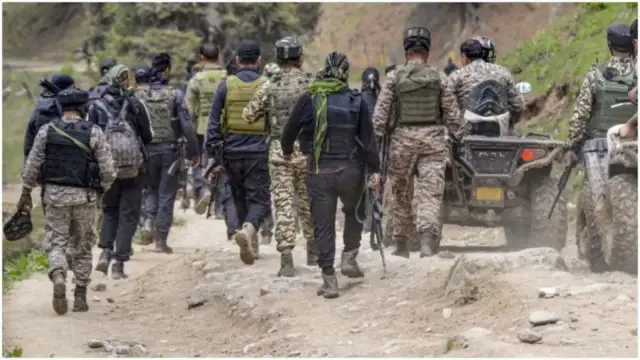Pakistani Minister warns India of '130 Nukes' amid rising tensions over Indus treaty
Pakistan's Hanif Abbasi has caused anxiety internationally by clearly issuing a nuclear threat to India. Abbasi had said Pakistan's Ghori, Shaheen, and Ghaznavi missiles, and 130 nuclear warheads, are reserved particularly for India.

Pakistan's Hanif Abbasi has caused anxiety internationally by clearly issuing a nuclear threat to India. Abbasi had said Pakistan's Ghori, Shaheen, and Ghaznavi missiles, and 130 nuclear warheads, are reserved particularly for India. This utterance has provoked worry about heightening tensions between the two countries.
The context
The threat has come at a time of escalating tensions between Pakistan and India since the Pahalgam terror attack, where 26 were killed. India has retaliated by suspending visas for Pakistanis and keeping the 1960 Indus Waters Treaty in abeyance.Pakistan has, in retaliation, shut its airspace to Indian airlines and has threatened to put the 1972 Simla Agreement into abeyance.
Pak Rail Minister Hanif Abbasi openly threatens NUCLEAR WAR after #PahalgamAttack:
— Prakash (@Prakash20202021) April 27, 2025
"Our Ghori, Shaheen, Ghaznavi missiles & 130 nuclear bombs are not for display — they are for INDIA. Stop water and be ready for war.
Our weapons are facing you." pic.twitter.com/ppAh8skSTm
The implications
Abbasi's threat carries serious repercussions for the region. The Indus Waters Treaty, which defines how India and Pakistan share their water resources, is a major element of their relationship. A breach of the treaty would have dire implications for Pakistan's agriculture and economy. Abbasi's threat that Pakistan is ready to attack if attacked has sparked fear about the likelihood of military confrontation.
The economic angle
India-Pakistan tensions have also acquired an economic dimension. India has diluted diplomatic relations with Pakistan, and Abbasi asserted that Islamabad stands ready to hit back at any economic steps taken against it. Abbasi's claim that Pakistan had already set out to map the consequences of India's step to downgrade bilateral trade shows that the economic conflict between the two countries is gathering steam.
The global concern
The world is observing the events between India and Pakistan with bated breath. The possibility of nuclear war is a serious issue, and diplomatic efforts must be made to ease tensions. The issue is multifaceted, with both countries having genuine concerns and interests. But the rhetoric on both sides must be measured and cautious so that there is no miscalculation.
The way forward
The situation between India and Pakistan needs to be handled with delicate diplomacy and dialogue. Both countries must have sincere talks to address their issues and strive towards a peaceful resolution. The international community can assist in the talks and promoting restraint on both sides.















